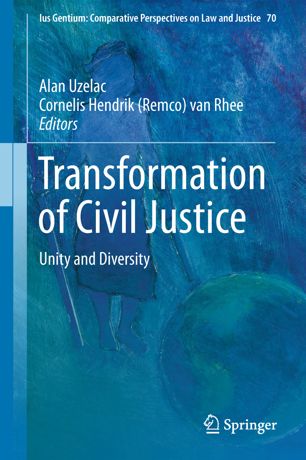

Most ebook files are in PDF format, so you can easily read them using various software such as Foxit Reader or directly on the Google Chrome browser.
Some ebook files are released by publishers in other formats such as .awz, .mobi, .epub, .fb2, etc. You may need to install specific software to read these formats on mobile/PC, such as Calibre.
Please read the tutorial at this link: https://ebookbell.com/faq
We offer FREE conversion to the popular formats you request; however, this may take some time. Therefore, right after payment, please email us, and we will try to provide the service as quickly as possible.
For some exceptional file formats or broken links (if any), please refrain from opening any disputes. Instead, email us first, and we will try to assist within a maximum of 6 hours.
EbookBell Team

4.3
78 reviewsNational civil justice systems are deeply rooted in national legal cultures and traditions. However, in the past few decades they have been increasingly influenced by integration processes at the regional, supra-national and international level. As a by-product of the emergence of economic and political unions and globalisation processes there is pressure to harmonise or even unify the way in which national civil justice systems operate. In an attempt to create a ‘genuine area of justice’, new unified procedures are being developed, which operate in parallel with national civil procedures, and sometimes even strive to replace them. As a reaction to the forces that endeavour to harmonise and unify procedural laws and practices, an opposing trend is gaining momentum: one that insists on diversity and pluralism of national civil procedures. This book focuses on the evolution of procedural reforms in various jurisdictions and the ongoing transformation of national civil justice systems.